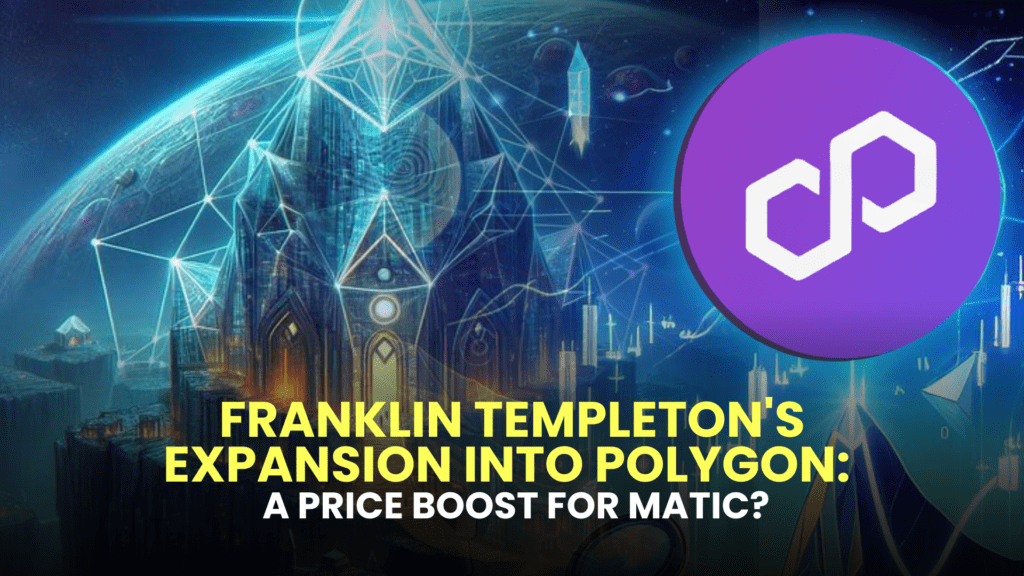
Franklin Templeton Tokenizes $380 Million on Polygon: A Boost for MATIC?
Franklin Templeton, a major financial institution, has decided to tokenize a US government money fund worth $380 million on the Polygon blockchain. This development has not only provided Polygon with a boost in terms of credibility but also resulted in a positive price movement for its native token, MATIC. Let’s break down what this means for the Polygon ecosystem.
Institutional Interest in Polygon
Franklin Templeton’s move to tokenize a substantial treasuries fund on both the Polygon and Stellar blockchains underscores the growing interest in blockchain-based solutions from traditional financial entities. The tokenized fund, known as the Franklin OnChain United States Government Money Fund (FOBXX), allows shares to be represented as BENJI tokens, which can be traded on public blockchains.
Peer-to-Peer Transfers: The tokenization of assets enables direct peer-to-peer (P2P) transfers without the need for intermediaries, allowing for faster and more cost-effective transactions.
Increased Flexibility: The introduction of the BENJI tokens provides investors with greater flexibility to manage their assets through direct exchanges on Polygon and Stellar.
This innovative approach by Franklin Templeton is a step toward streamlining transactions and increasing the accessibility of investment products. It also positions the company to compete directly with BlackRock’s recent tokenization efforts on Ethereum.
Impact on Polygon and MATIC
The decision by a major financial player to tokenize on Polygon not only validates the potential of the blockchain but could also lead to further institutional interest. This could increase the number of tokenized assets on Polygon and attract more investors looking for exposure to government securities with the added benefits of blockchain technology.
Enhanced Liquidity: The tradability of BENJI tokens on the Polygon blockchain can lead to improved liquidity for the underlying treasuries fund, attracting more investors seeking exposure to government securities.
Credibility and Reputation: This endorsement from Franklin Templeton boosts Polygon’s credibility and reputation, potentially leading to more institutional participation and a sustained price rally for MATIC.
Despite the positive news surrounding the tokenization initiative, there are some areas of concern within the Polygon ecosystem, specifically in the NFT sector.
Challenges in the Polygon NFT Sector
While institutional interest in Polygon has increased, the NFT sector has experienced a significant decline in trading volume over the past few days. This reduction in activity can have a few negative effects:
Reduced Network Fees: Lower trading volume can lead to decreased network fees, impacting revenue for Polygon validators.
Decreased Liquidity for NFT Projects: With fewer transactions, liquidity for existing NFT projects on Polygon might decrease, making it harder for users to buy or sell NFTs quickly at a fair price.
Despite these challenges, MATIC’s price has shown resilience, with a 2.43% growth over the past 24 hours, reaching $0.7183. However, the trading volume for MATIC has dropped by 16.34%, suggesting that market sentiment might be mixed.
In summary, Franklin Templeton’s move to tokenize a large US government money fund on Polygon is a strong positive signal for the blockchain and MATIC. However, the decline in NFT trading volume could pose challenges for Polygon’s broader ecosystem.

